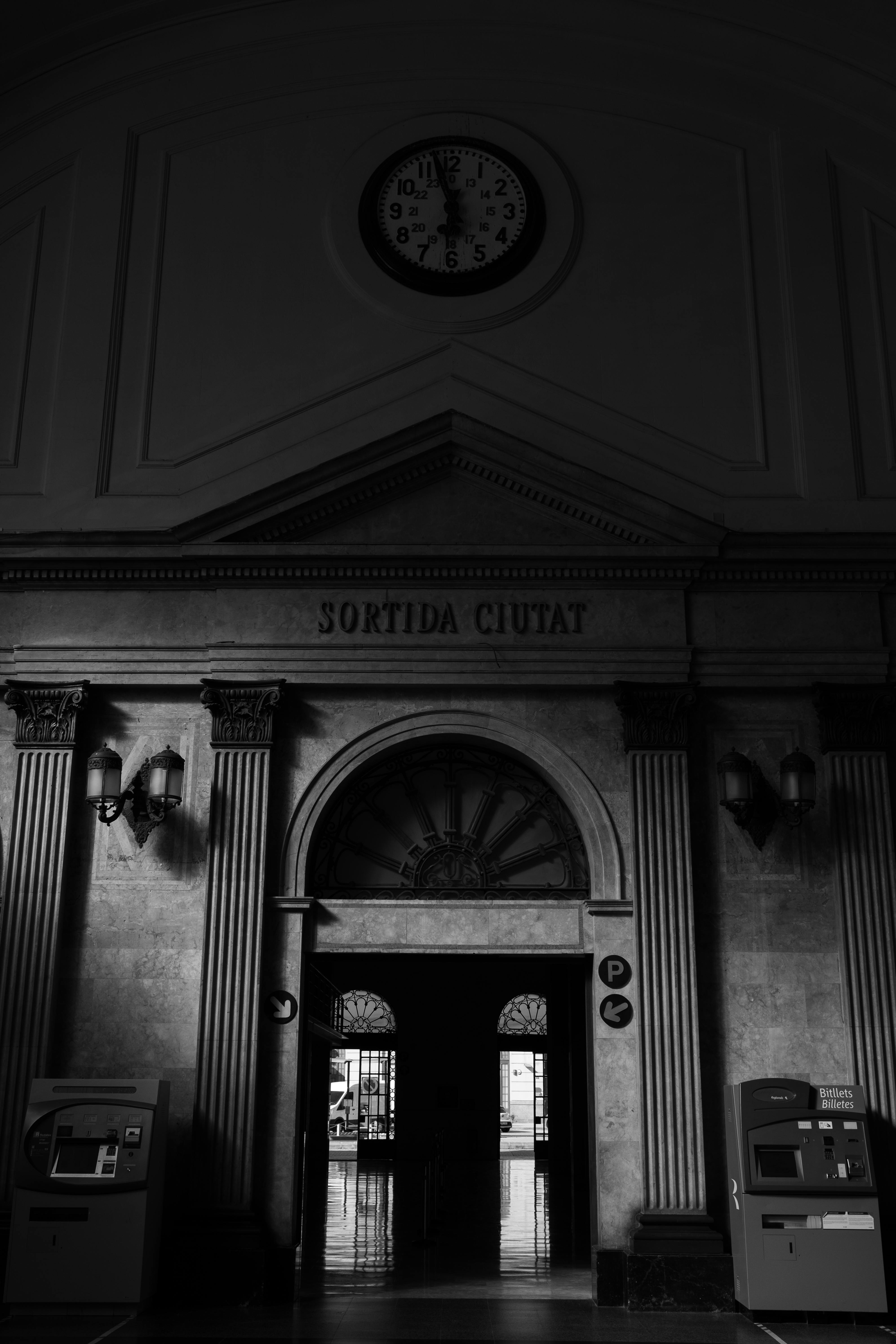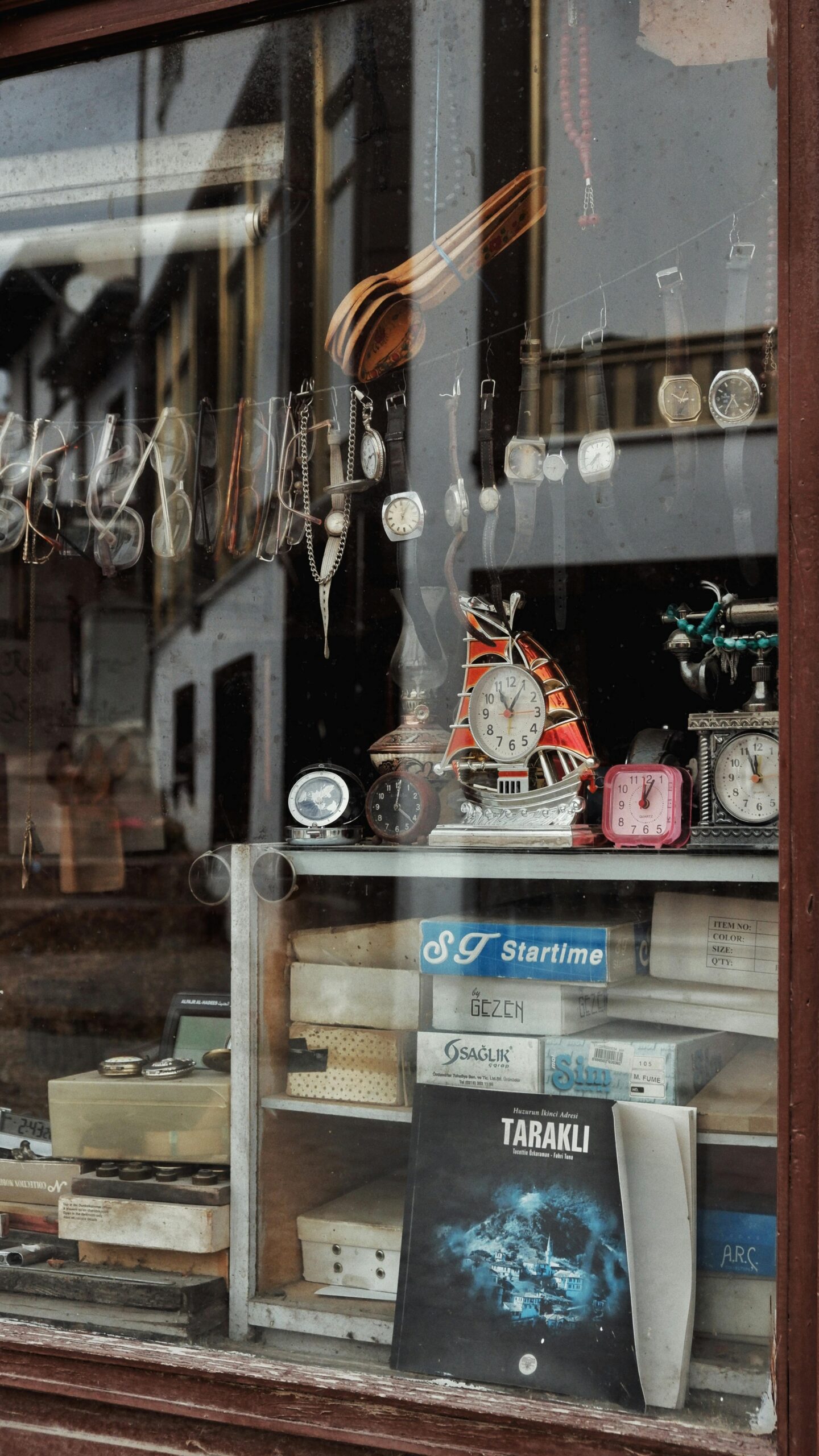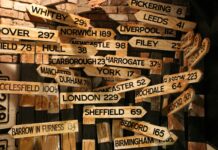Exploring the time in Sheffield offers a unique glimpse into a city rich with history, culture, and vibrant modern life. Have you ever wondered what makes Sheffield’s local time so special compared to other UK cities? Nestled in South Yorkshire, Sheffield is known for its perfect blend of industrial heritage and green spaces, making it an exciting destination to experience both the past and present. When planning your visit, understanding the current time in Sheffield can help you make the most of your day, from catching the sunrise over the Peak District to enjoying the lively nightlife. Did you know that Sheffield operates on Greenwich Mean Time (GMT) during winter and switches to British Summer Time (BST) in the warmer months? This seasonal shift influences not just daily schedules but also local events and festivals, adding an extra layer of excitement. Curious about the best times to explore Sheffield’s iconic landmarks or attend popular events? Staying updated with the Sheffield time zone ensures you never miss a moment. Whether you’re a traveller, a student, or someone interested in UK time zones, discovering the nuances of Sheffield local time unlocks a deeper appreciation for this dynamic city. Ready to uncover the secrets behind Sheffield’s time and how it shapes life here? Keep reading to find out more!
Unveiling Sheffield’s Time Zone: What Makes Its Local Time So Distinctive?

When you think about the time in Sheffield, you probably imagine the usual British weather and some clock ticking somewhere in the city centre. But honestly, Sheffield’s time is a bit more than just the hour hand moving, innit? Its rhythm feels like a mix of the hustle from the universities, the chill from the parks, and maybe a lingering pub closing time in the back of your mind. Not really sure why this matters, but every minute here seems to have a story, whether you are stuck in a tram or sipping tea in a cosy café.
Let’s start with the basics, shall we? Sheffield runs on Greenwich Mean Time (GMT) during the winter months, but then it jumps forward an hour to British Summer Time (BST) when the clocks go forward in March. Sounds simple enough, but try telling that to the people who forgot to change their clocks and arrived an hour early for work – happens more often than you think! Here’s a quick little table to help you keep track of it all:
| Month | Time Zone | Typical Daylight Hours |
|---|---|---|
| January | GMT | 8 hours approx |
| April | BST | Around 14 hours |
| July | BST | Up to 16 hours (long days!) |
| October | BST (until last Sunday) | About 12 hours |
| November | GMT | Back to around 8 hours |
Now, if you’re wondering about the best time to visit Sheffield, it really depends on what you’re after. Summer gives you those long daylight hours where you can wander around the Peak District nearby without feeling rushed. But the winter? Oh, it can get pretty nippy, and sometimes the daylight feels like it just disappears before you’ve even had your breakfast. Maybe it’s just me, but I feel like the shorter days make the pubs more inviting somehow.
Talking about time and weather, it’s impossible to ignore Sheffield’s unpredictable climate. One minute it’s sunny, and the next, it’s chucking it down with rain. So, the weather and time in Sheffield kinda go hand in hand, messing with your plans. Best to always carry a brolly, even if the sky looks clear at 10 am. Honestly, the local saying “If you don’t like the weather, wait five minutes” should be Sheffield’s official motto.
To make things a bit more practical, here’s a little checklist of things you might want to consider about time when you’re in Sheffield:
- Check public transport timings carefully – buses and trams sometimes run late, especially during rush hour.
- Peak times in the city centre are usually 8-10 am and 4-6 pm, so avoid if you hate crowds.
- Pubs generally close around 11 pm, but some late licences mean a few stay open till 1 am.
- University terms affect the city’s buzz – during term time, expect more lively evenings and busy daytime spots.
- Seasonal events like the Sheffield Festival or Christmas markets alter usual opening times for many shops.
If you’re a bit of a data nerd, here’s a quick breakdown of how daylight changes through the year in Sheffield, just because why not:
| Month | Sunrise (approx.) | Sunset (approx.) | Daylight Hours |
|---|---|---|---|
| January | 8:15 am | 4:00 pm | 7h 45m |
| March | 6:30 am | 6:00 pm | 11h 30m |
| June | 4:45 am | 9:30 pm | 16h 45m |
| September | 6:45 am | 7:30 pm | 12h 45m |
| December | 8:20 am | 3:50 pm | 7h 30m |
Sheffield’s clocks might tick like any other place in the UK, but the city’s vibe during different times of the day really stands out. Early mornings can be eerily quiet, specially on weekends when the students sleep in (or party late, who knows). Afternoons are perfect for grabbing a coffee and watching the world go by at one of the many independent cafes. Evenings, well, that’s when the pubs and music venues come alive, and you can lose track of the time entirely.
One quirky thing about the time in Sheffield is how it influences the local lifestyle. Working hours start fairly early compared to London, and people tend to finish up by 5 pm or so. But then, the nightlife can stretch on, especially during the weekends. If you’re relying on public transport late at night, you better check the timet
7 Fascinating Facts About Timekeeping Traditions Unique to Sheffield

When you thinks about the time in Sheffield, you probably imagine a pretty normal British city, right? Well, yeah, it is, but there’s more to it than just ticking clocks and bus schedules. Sheffield’s got this weird charm where time kinda stretches and squeezes depends on where you at in the city. Not really sure why this matters, but if you ever been here, you might noticed how the day just drags a bit or flys by depending on your mood or weather.
First off, let’s talk about the basic stuff — the timezone. Sheffield, like the rest of the UK, runs on Greenwich Mean Time (GMT) in the winter and British Summer Time (BST) when the clocks goes forward. Simple enough, but sometimes it feels like the best time to visit Sheffield is never quite right. You’ll get people saying, “Oh, you should come in spring” or “Nah, autumn is proper lovely here.” Honestly, I think they all just trying to get you here when the weather’s not rubbish, which, let’s face it, is a rare event.
Here’s a quick table to show you what I mean about the daylight hours changes through the year:
| Month | Sunrise (approx) | Sunset (approx) | Daylight Hours |
|---|---|---|---|
| January | 8:00 am | 4:00 pm | 8 hours |
| April | 6:00 am | 8:00 pm | 14 hours |
| July | 5:00 am | 9:30 pm | 16.5 hours |
| October | 7:30 am | 6:30 pm | 11 hours |
| December | 8:30 am | 3:45 pm | 7 hours 15 mins |
See? The daylight time in Sheffield varies a lot, which means if you’re planning to do any outdoor activities, better check the clock twice. I swear, some folks here complain it gets dark too early, but others love the cosy evenings with street lights and pubs glowing warm. Maybe it’s just me, but I feel like the shorter days kinda makes you appreciate a good cup of tea more.
Speaking of cups of tea, time in Sheffield also relate to its famous steel industry history. Back in the day, people worked really long hours in the steel mills — so much so that “Sheffield time” was sometimes joked about as working non-stop. The irony is not lost on anyone these days, because although the industry has changed, the pace of life in Sheffield seems to have slowed down in many parts, especially compared to London or Manchester.
If you want, here’s a little list of what people in Sheffield usually do depending on the time of day:
- Early Morning (6am-9am): Commuters rush to work, trams and buses get packed, and the smell of bacon butties fills the air.
- Midday (12pm-2pm): Lunch time! Pubs get busy, especially those that serve the famous “Sheffield Pie”.
- Late Afternoon (4pm-6pm): Students finishing classes, shoppers wandering through Meadowhall or the city centre.
- Evening (7pm-10pm): Time for socialising, hitting the theatres or music venues, or just chilling at a local pub.
- Night (11pm onwards): Some parts of Sheffield get pretty quiet, but Kelham Island and Ecclesall Road still buzz with nightlife.
Now, if you’re wondering about the current time in Sheffield, well, you could just google it, but I guess you want something a bit more useful, right? So here’s a simple formula to remember Sheffield’s time offset:
- Standard Time (GMT): UTC +0 hours
- Daylight Saving Time (BST): UTC +1 hour (from last Sunday in March to last Sunday in October)
That means if you’re calling friends from abroad or scheduling a meeting, just add or subtract accordingly. Easy, isn’t it? But remember, clocks can be confusing — my mate once showed up an hour early because he forgot about BST, and we had a laugh about it for weeks.
Another quirky fact — Sheffield is known for its “city clock” at the Peace Gardens, but honestly, many people use their phones to check the time now. Still, the clock is a bit of a local landmark and sometimes it stops working, which causes a small panic because, apparently, some people rely on it more than they admit.
So, what about the best time of year to experience Sheffield’s events? Here’s a quick rundown to help you plan your trip:
| Event | Typical Month(s) | Notes |
|---|---|---|
| Tramlines Festival | July |
How Sheffield’s Historical Landmarks Reflect the Passage of Time

When it comes to the time in Sheffield, well, it’s not really something you hear about often, but it’s surprisingly interesting if you dig a bit deeper. You might think the time there is just the same as the rest of the UK, which it mostly is, but there’s a bit more to it than just glancing at your watch or phone. I mean, Sheffield’s got its own little quirks when it comes to how people relate to time, and how it kinda shapes life in this steel city.
So, first off, Sheffield is in the Greenwich Mean Time (GMT) zone during the winter months, and British Summer Time (BST) in the summertime — yeah, the usual stuff you’d expect. But, not everyone in Sheffield is always on the same page about what time it is, especially when it comes to local events or get-togethers. It’s like, you say meet at 3 pm, but half the people show up closer to 3:30, sometimes even later without a fuss. Maybe it’s just me, but I feel like the local attitudes towards time in Sheffield is a bit more relaxed compared to, say, London or Manchester.
Let’s put it in a quick table to make things clear:
| Season | Time Zone | Average Sunrise | Average Sunset |
|---|---|---|---|
| Winter | GMT (UTC+0) | 8:00 AM | 4:00 PM |
| Summer | BST (UTC+1) | 5:00 AM | 9:30 PM |
Not really sure why this matters, but if you’re planning to visit Sheffield, knowing when the sun actually sets could help you plan your day better. People here loves their daylight, especially after those long, dark winters. And that brings me to another point — the best time to visit Sheffield is definitely in the summer months. You get longer daylight hours and the city kinda comes alive with festivals, open-air events, and markets.
Now, speaking of festivals, the time Sheffield locals keep in mind for those events can be a bit… flexible. I remember once a mate told me the gig started at 7 pm, but the band only took the stage around 8:15. It’s as if “Sheffield time” runs on its own clock, not the official one.
To give you a rough idea, here’s a simple listing of common Sheffield events and their usual start times compared with when you can expect them to actually kick off:
- Sheffield Doc/Fest: advertised start 9:00 AM | actual start 9:30 AM
- Tramlines Festival: advertised start 12:00 PM | actual start 1:00 PM
- Winter Market: advertised start 10:00 AM | actual start 10:15 AM
From my experience, this lateness isn’t really rude or disrespectful, more like a cultural quirk. People just isn’t too fussed about being strictly on time. You might think that’s sloppy, but hey, it’s Sheffield — they got more important things to worry about like football and pie shops.
Also, the time difference between Sheffield and other major UK cities isn’t actually a difference, but the perception of time kinda changes. For example, in London, business meetings start bang on time and everyone’s rushing around like headless chickens. Sheffield? Nah, it’s more chilled, and meetings might start a bit later or end earlier depending on the mood.
Here’s a quick chart comparing the “time vibe” in these cities (totally unscientific but you get the idea):
| City | Punctuality Level | General Vibe |
|---|---|---|
| London | High | Fast-paced, rushing |
| Manchester | Medium | Balanced |
| Sheffield | Low | Relaxed, easygoing |
Don’t quote me on that but it’s based on chatting with locals and observing a few times. Maybe it’s just me being a bit biased, but that’s what I noticed.
On the practical side, if you need to know the current time in Sheffield UK — the easiest way is to just google it or check your smartphone. The city follows the UK’s official time, so no surprises there. But if you’re planning activities outdoors, it’s important to keep an eye on the sunset times, especially in winter when it gets dark early. For example, in December the sun sets around 3:50 pm, which can make the city feel a bit gloomy if you ain’t prepared.
Some practical tips for dealing with time in Sheffield:
| Tip | Reason |
|---|---|
| Always check event start times | They might start later than advertised |
| Plan outdoor activities in summer |
Discover the Best Times to Visit Sheffield for Seasonal Events and Festivals

When it comes to the time in Sheffield, well, it’s not just about looking at the clock and moving on, is it? Sheffield, being one of the largest cities in South Yorkshire, England, plays host to a lot more than just the usual Greenwich Mean Time (GMT) or British Summer Time (BST). The city has its own quirky charm when it comes to how people perceive and use their time, which might be surprising to some of you.
Now, before we dive into the nitty gritty, let me just say, the best time to visit Sheffield for sightseeing is something a lot of travellers ask about. Honestly, I’m not really sure why this matters, but apparently, some folks want to get their timing just right so they don’t get caught in the rain or miss out on the local festivals. So, here’s a little table that might help you plan your Sheffield adventure better:
| Month | Average Temperature (°C) | Rainy Days | Special Events |
|---|---|---|---|
| January | 3-6 | 15 | Winter Lights Festival |
| April | 7-12 | 12 | Sheffield Food Festival |
| July | 14-20 | 10 | Tramlines Music Festival |
| October | 8-13 | 14 | Doc/Fest (Film Festival) |
Don’t get me started on the weather, though. It changes more often than my mood on a Monday morning—one minute it’s sunny, the next you’re drowning in rain. That’s Sheffield for ya.
Moving on, the current time in Sheffield UK is of course aligned with GMT in winter and BST in summer. But, what’s funny, or maybe a tad confusing is how people in Sheffield sometimes talk about the time. They’d say things like “I’ll see you in a tick” which, honestly, could mean anything from a few seconds to a couple of hours, depending on who you ask. The local dialect throws in a bit of spice that no official time zone can capture.
If you’re wondering about how businesses operate with respect to the working hours in Sheffield city centre, here’s a quick list to give you an idea:
- Most shops open around 9:00 AM and close by 5:30 PM, but some might stay open till 8 PM on Thursdays or Fridays.
- Pubs and bars usually start getting busy by 6 PM, and they close anywhere between 11 PM to 1 AM.
- Offices generally stick to the 9-to-5 routine, but with remote working becoming a thing, this is getting a bit flexible.
Sheffield also got a reputation for its night owls. I mean, some people stays out till the wee hours, and the nightlife is buzzing especially on weekends. So if you’re asking about the best time for nightlife in Sheffield, definitely after 9 PM when the pubs and clubs come alive.
Here’s a quirky fact you maybe don’t know: Sheffield has a few sundials around the city, and they’re not just for show. They kinda remind us that time isn’t just ticking on our watches but is also something you can literally see moving with the sun. Not really sure why this matters, but it’s a cool bit of history, innit?
Now, let’s talk about the time zone differences Sheffield has with other major cities. For travellers, this can be a bit of a headache, especially if you’re trying to call home or schedule meetings. I’ve made a quick table for easy reference:
| City | Time Difference with Sheffield |
|---|---|
| London | Same time |
| New York | -5 hours |
| Sydney | +9 hours |
| Tokyo | +8 hours |
| Paris | +1 hour |
Remember, these differences changes when daylight saving time kicks in or ends, so always double-check before making plans.
One thing that might throw you off if you new to Sheffield is how public transport relates to time. The buses and trams are usually on time, but sometimes they’re not. If you’re in a hurry, maybe add a cushion of 10 to 15 minutes because delays can and do happen. The sheffield public transport timings are mostly reliable but expect the unexpected, as they say.
To give you a better feel, here’s a quick snapshot of average weekday bus schedules from the city centre to popular spots:
| Destination | First Bus | Last Bus | Frequency (mins) |
|---|---|---|---|
| Meadowhall | 06:00 AM | 11:30 PM | 10-15 |
| Hillsborough | 06:15 AM | 11:00 PM |
Why Sheffield’s Time Culture Is a Hidden Gem for History and Travel Enthusiasts

Sheffield is a city that always has something going on, and if you ever wonder about the time in Sheffield and how it affects daily life here, well, you’re not alone. Not really sure why this matters, but locals and visitors alike often get a bit confused about what time it really is, especially when daylight saving time kicks in or out. The clocks changes mess with everyone, it seems, like some kind of cruel joke. But there’s more to the time in Sheffield than just the ticking of clocks.
Let’s start with the basics: Sheffield, like the rest of the UK, follows Greenwich Mean Time (GMT) during the winter months and British Summer Time (BST) in the summer. BST is basically GMT plus one hour, but it only runs from late March to late October. If you’re planning to visit or move here, you got to remember this or you might end up arriving an hour too early or too late, which is always a bit embarrassing. I mean, who wants to sit outside a café waiting for it to open when it’s actually closed?
Here’s a quick table to help you get an idea of when the time changes:
| Period | Time Zone | Typical Dates |
|---|---|---|
| Winter | GMT | Last Sunday in October to Last Sunday in March |
| Summer (Daylight Saving) | BST | Last Sunday in March to Last Sunday in October |
Not exactly rocket science, but you’d be surprised how many people get it wrong, especially tourists or those new to Sheffield. Maybe it’s just me, but I feel like the whole daylight saving thing is more hassle than it worths. We change the clocks twice a year, but does it really save energy or improve our lives? Some say yes, some say no, and others just don’t care.
Now, moving on to how the time in Sheffield affects public transport schedules. If you’re using buses or trains, you’ll find that timetables are usually posted in local time, meaning they adjust for daylight saving automatically. However, if you’re checking online or from an app, sometimes the times are shown in your device’s local time, which can cause confusion if you’re not paying attention. I once missed a train because I forgot to change my phone’s clock back. Not my finest moment.
Here’s a little listing of tips to avoid getting mixed up with time when travelling around Sheffield:
- Always double-check the current time zone, especially around the end of March and October.
- Use official transport websites or apps that automatically update for daylight saving.
- Set reminders the day before the clock changes to avoid being an hour early or late.
- If you’re working with people in different time zones, clarify the time zone explicitly in your messages.
- For the love of all that is good, don’t rely solely on your phone’s clock without verifying!
Talking about the local vibe, the time in Sheffield can also influence the social scene. People tend to stay out later in the summer months because the evenings are longer thanks to BST. Pubs and clubs are busier, and it feels like the whole city wakes up when the sun sets late. In winter, it’s a different story; the early darkness sort of drags everyone down, and people tend to stay indoors more. It’s like the city’s pulse slows down with the fading light.
Here’s a rough comparison of daylight hours during different times of the year in Sheffield:
| Month | Sunrise Approx. | Sunset Approx. |
|---|---|---|
| June | 04:30 | 21:45 |
| December | 08:15 | 15:50 |
Notice the huge difference? This is why some folks complain about the winter blues here. Less sunlight, less energy, and more time spent indoors binge-watching TV or blaming the weather.
Speaking of weather, it’s worth mentioning that the time in Sheffield doesn’t just affect daylight but also how you plan your outdoor activities. For example, if you want to enjoy the Peak District nearby, mornings in winter can be quite gloomy and chilly, often foggy too. But summer mornings? Perfect for hikes and maybe a cheeky picnic. Not saying you can’t do it in winter, but you’d be freezing your socks off.
If you’re wondering how to keep track of time effectively in Sheffield, here’s a simple checklist:
- Get a wall clock that you don’t have to change twice a year (if such a thing exists).
- Use a smartwatch that alerts you to daylight saving changes.
- Keep a calendar with daylight saving dates marked.
- Sync your devices regularly to an official time server.
- Don’t panic if you get it wrong once in a while; we all do.
Honestly, the whole concept of time here is a bit of a headache sometimes
Conclusion
In conclusion, understanding the local time in Sheffield is essential whether you are planning a visit, scheduling meetings, or simply keeping in touch with friends and family in the city. Sheffield operates on Greenwich Mean Time (GMT) during the winter months and switches to British Summer Time (BST) in the summer, reflecting the UK’s daylight saving practices. This adjustment not only affects daily activities but also plays a significant role in business operations and travel arrangements. Being aware of these changes ensures punctuality and smooth communication. As Sheffield continues to grow as a vibrant cultural and economic hub, staying informed about its time zone nuances becomes increasingly important. Whether you’re a resident or a visitor, make it a habit to check the local time before making plans. Doing so will help you make the most of your experience in this dynamic city. Stay connected, stay punctual, and enjoy all that Sheffield has to offer.













